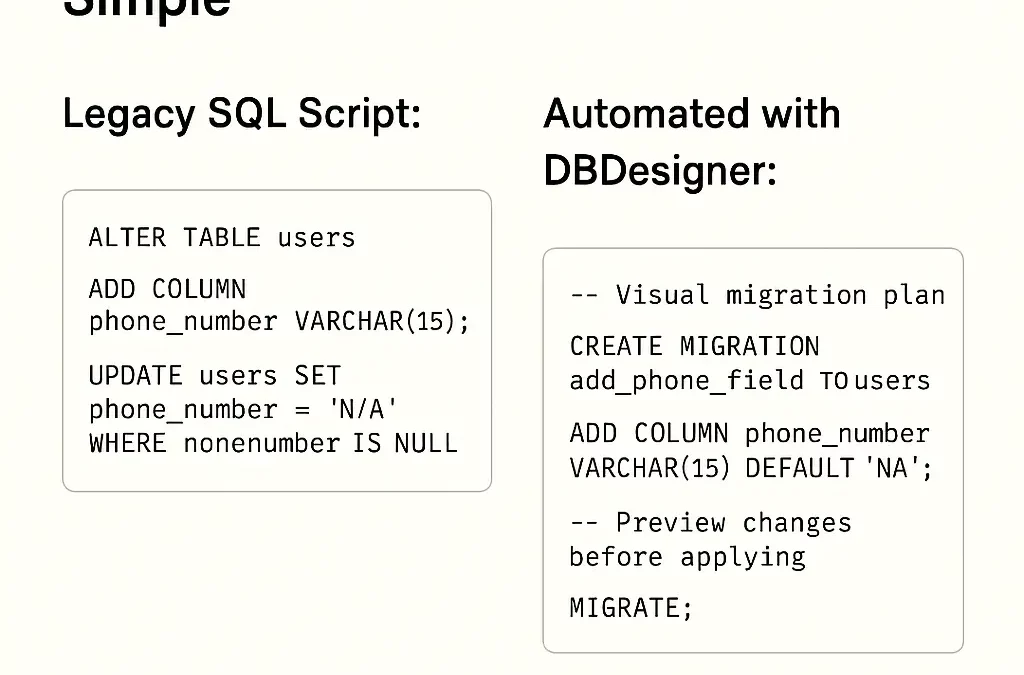Mastering Database Migration Strategies
Database migrations are the backbone of evolution in modern systems — helping you move from legacy databases to scalable, cloud-native architectures. With DBDesigner’s migration tools, developers can seamlessly transition schemas, relationships, and data between engines like MySQL, PostgreSQL, and SQL Server — all with zero manual SQL scripting.
“Over 70% of enterprise database upgrades now rely on automated migration frameworks to ensure uptime and data integrity.” – 2025 DataOps Benchmark
Why Database Migrations Matter
- Future-Proofing: Upgrade to new engines without rewriting your data models
- Cloud Readiness: Move seamlessly to AWS RDS, Azure SQL, or Google Cloud SQL
- Automation: Reduce human error with visual schema synchronization
- Downtime Reduction: Live migration options maintain continuous service
Types of Database Migrations
Using visual database design simplifies every migration type:
- Homogeneous Migration: Move between similar engines (e.g., MySQL → MariaDB)
- Heterogeneous Migration: Transition between platforms (e.g., Oracle → PostgreSQL)
- Cloud Migration: Shift on-prem databases to cloud-hosted systems
- Version Migration: Upgrade schema while maintaining backward compatibility
Example: Schema Migration Made Simple
Legacy SQL Script:
ALTER TABLE users
ADD COLUMN phone_number VARCHAR(15);
UPDATE users SET phone_number = 'N/A' WHERE phone_number IS NULL;
Automated with DBDesigner:
-- Visual migration plan
CREATE MIGRATION add_phone_field TO users
ADD COLUMN phone_number VARCHAR(15) DEFAULT 'N/A';
-- Preview changes before applying
MIGRATE;Migration Benefits
- Maintain data integrity during schema changes
- Enable rollback support for failed updates
- Visualize migration impact on connected entities
Best Practices for Safe Migrations
- Version Control: Track schema changes like code commits
- Dry Runs: Test migrations in staging environments first
- Incremental Updates: Apply changes in small, reversible steps
- AI Validation: DBDesigner automatically detects migration conflicts
Migration Monitoring & Rollback
Monitoring
- Track migration progress visually
- Identify performance regressions early
Rollback
- Generate auto rollback scripts
- Restore prior schema state instantly
Audit
- Maintain a detailed change log
- Comply with governance standards
Conclusion: Migrate Smarter, Not Harder
Modern teams rely on intelligent migration workflows to:
- Reduce migration time by up to 80%
- Ensure seamless upgrades between environments
- Automate rollback and version control
Ready to Modernize Your Database?
Plan Your Migration Visually — migrate smarter with built-in AI validation and schema comparison.
For Enterprise Teams:
Streamline multi-engine database migrations


Recent Comments